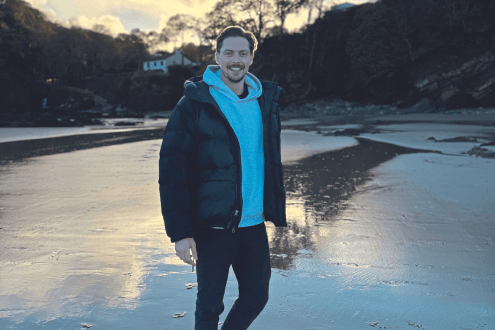See yourself as others see you
We may think we know ourselves better than anyone, but our unconscious often leads us to act in surprising ways — and strangers may be better at predicting our behaviour than we are. Professor Timothy D Wilson from the University of Virginia explains all to Rebecca Alexander

Q Your book, Strangers To Ourselves, is about how our unconscious mind can have more influence over our everyday thoughts and actions than we realise. Can we really surprise ourselves in this way?
A: There is good research evidence that we don’t always know our own motives or know the reasons why we do or choose certain things. What I call the ‘adaptive unconscious’ is a convenient term for a whole collection of parts of our minds that we don’t have access to.
Q: How we are unwittingly guided by our adaptive unconscious?
A: The non-conscious mind has its own reasons for doing things, its own feelings and its own personality. To examine how our unconscious can influence our decisions, I carried out a study with my colleague, Richard Nisbett, asking people to choose their favourite pair of tights, from four pairs labelled A, B, C and D, from left to right. We discovered that people preferred the item on the far right — pair D was the top choice. We then asked people to explain their reasons. They typically pointed to an attribute of their preferred pair, such as the superior knit, sheerness or elasticity. No one mentioned the position of the tights. Yet we knew that people chose pair D because of its position. Unknown to them, the tights were all identical. This is a good example of how our conscious mind makes up explanations for why we made a particular choice, while our unconscious has its own reasons.
Q: Can we be wrong about our feelings too?
A: There are several reasons why our non-conscious mind can hold emotions that conflict with our conscious self. One is repression, where forces are brought into play to hide a threatening feeling. The second is inattention, or the failure to notice that a feeling has changed — a typical example is two people who are the last to realise that they are falling in love with each other. The third is the obscuring of feelings by the smoke screen of our conscious theories about ourselves and our lives. We may fail to recognise a feeling because it conflicts with a cultural ‘feeling rule’ (‘my wedding day will be the happiest of my life’), a personal standard (‘I am not racially prejudiced’), or conscious theories about how one feels (‘I must love him because he’s my dad’).
Q: Surely we know our own personality inside out? Or does our unconscious have a say over that too?
A: Our personality can also partly reside in our adaptive unconscious, which has distinctive, characteristic ways of interpreting the social environment and motives that guide our behaviour. These are rooted in early childhood, and are in part genetically determined. However, we don’t always have direct access to this part of ourselves, so we also construct a conscious self from other sources — from our life stories, possible selves, explicit motives, self-theories and beliefs about our reasons for our feelings and behaviours. Oddly, these two selves appear to be relatively independent. For example, the spontaneous decision of whether to argue with one’s colleague is likely to be under the control of our non-conscious needs for power and affiliation. A more thoughtful decision about whether to invite a colleague over for dinner is more likely to be under the control of our conscious, self-attributed motives.
Q: Why is it that other people can sometimes ‘see’ us and predict our moods and behaviour better than we can ourselves?
A: Sometimes an outsider can see through the smoke screen of our narrative to how we really feel about something. For example, one study looked at college students who were dating, and asked them, their room-mates and parents to guess how long the relationship would last. Those in the relationships made the worst predictions — their room-mates and parents were more accurate.
Q: What prevents us from seeing ourselves the way others see us?
A: People form impressions of us based on our automatic, uncontrolled actions as well as on our controlled and our deliberative actions. Whereas we give more weight to actions that conform to our theory about who we are, but we ignore or discount actions if they’re not part of that theory. For example, if we believe that we’re shy and we happen to notice that we’re the life and soul of the party on one occasion, we’ll discount that and say ‘I was just in a good mood that day’. Yet an observer might more accurately infer that we’re just not that shy.
Q: What advice can you offer about seeing ourselves more clearly?
A: We need to have a little less confidence in our theories about ourselves. We may think we know how we feel and behave, but all the research shows that there is a lot about ourselves that we miss, or that we misread. The amount of inside information we have produces a misleading feeling of confidence. If we lower our certainty about who we are and what our motives are, we may see ourselves more as others do, and gain more clarity about ourselves.








